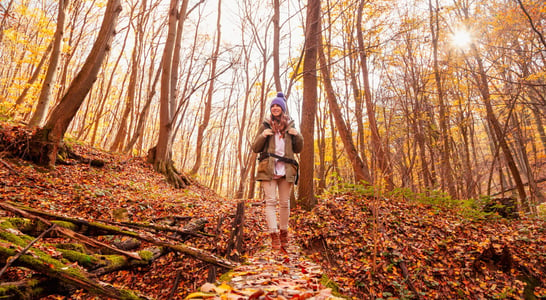
Brew Monday
It’s time to check in on a friend, neighbor or family member over a cup of coffee or tea!
One of the simplest days to celebrate, Brew Monday is a time to check in, have a conversation and listen to what they have to say. These types of efforts at building or reinforcing relationships are meant to be a path toward keeping people in the community connected to one another and, perhaps, function as a line of defense against depression, despair and suicide.
It’s time to get involved with Brew Monday!
History of Brew Monday
Depression and mental health struggles, particularly in the winter months, are not a new concept. For centuries people have known anecdotally about the winter blues that come in the dark months when it’s cold and the world seems sad. In more recent years, Seasonal Affective Disorder (SAD) has become a diagnosable form of depression that continues to impact a myriad of people in various parts of the world.
Brew Monday has a history that is attached to those winter blahs that can come, especially in the month of January, right in the middle of winter.
When Blue Monday surfaced in the UK in 2005, the concept came about through an advertising campaign for a travel agency called Sky Travel. In collaboration with a psychologist, Cliff Arnall, the company claims to have used a formula to determine that the third Monday of January is the most depressing day of the year.
While these claims have certainly been refuted over the years, one positive to response to Blue Monday came about from the Samaritans, a non-religious charity organization in the UK that focuses on suicide prevention.
Back in 1953, when a vicar and cartoonist, Chad Varah, was pastoring a church in England, he realized that many people were in despair and needed someone to talk to. So he started a small hotline which people could call if they were contemplating suicide. Dubbed by the Daily Mirror as the “Telephone Good Samaritan”, the name stuck. As Varah added people to help him, the result was what is now called Samaritans, a charitable organization with more than 22,000 volunteers.
When the idea of Blue Monday came about in the mid-2000s, with the idea that this was a very depressing day, Samaritans decided they wanted to do something about it. So they countered the phrase Blue Monday, with their own “Brew Monday”, encouraging people to brew a cup of coffee or tea and have a talk with someone.
It’s a simple but viable way for people to stay connected and avoid the feelings of loneliness and despair that often accompany those who have ideations of suicide. Brew Monday is here to encourage people to do something small that can make a really big difference!
Brew Monday Timeline
2000 BC
Earliest accounts of depression
Records from Mesopotamia show that depression concerns go back thousands of years.[1]
13th Century AD
Roasting and brewing of coffee
Coffee beans begin to be roasted and brewed around this time.[2]
1650s
Tea is first brewed in the UK
After China’s secret is revealed, tea is first brewed in London’s coffee houses.[3]
1953
Samaritans organization begins
Founded to help people contemplating suicide, Samaritans is a non-religious organization that gets its start in the UK.[4]
2005
“Blue Monday” concept surfaces
A UK travel company starts a campaign citing the third Monday of January as the gloomiest day of the year.[5]
How to Celebrate Brew Monday
Brew Monday is a day to pay attention to and care for those in life who might need a bit of extra attention during this time of year. Consider some of these ideas that can be implemented in honor and celebration of Brew Monday:
Check in on a Loved One
Brew Monday is the perfect opportunity to call or text someone you care about to see how they are doing. Invite them to have a conversation or get out of the house to share in a cup of coffee or tea. This is a great time to be a special lifeline for someone who may be lonely or struggling with depression.
One of the best things that can be helpful in caring for someone is to be a good listener. Practice good listening skills such as watching for body language and non-verbal cues, asking good questions, reflecting back, making eye contact and staying engaged in the conversation.
Host a Brew Monday Event
Local communities can get on board with Brew Monday by hosting a gathering or even that raises awareness for the cause and works toward suicide prevention. Brew Monday events can happen either virtually or in person and can be focused around the idea of catching up with and checking in on those people you care about.
Some groups might want to turn Brew Monday into an event that helps to raise funds for charities, like Samaritans. Perhaps a cafe or community space would like to host an event that provides free coffee or tea and asks participants to make a $5 donation to a suicide prevention charitable organization. The benefits are two-fold because it’s an opportunity for participants to socialize and connect while they can also feel good about making a donation to a worthy cause.
Become a Volunteer for Suicide Prevention
People who feel particularly strongly about helping others who are facing depression or suicidal struggles may consider using Brew Monday as a motivator to sign up as a volunteer. This might be a great time to choose a charitable organization in the local community that needs
Make a Donation on Brew Monday
Those who want to use Brew Monday as a way to have a far reaching impact can choose to make a donation to a charity that helps to prevent suicide. Samaritans is just one of many suicide prevention hotlines all over the world that help people. Others include the American Foundation for Suicide Prevention (AFSP), Suicide Awareness Voices of Education (SAVE) and the National Suicide Prevention Lifeline, which can be reached by dialing 988. .
See a Counselor
People who are finding themselves in a state of depression, whether on Brew Monday or any other day of the year, can seek help from a counselor, doctor or other mental health professional. While it is very important to stay connected with friends or family members on a regular basis over a cup of coffee or tea, many people find that seeing a counselor or therapist can assist in finding healing for wounds and maintaining a healthy mental state all throughout the year. Take Brew Monday as an opportunity to make an appointment with a counselor for yourself or encourage a loved one to do so.
Brew Monday FAQs
What is Brew Monday?
Brew Monday was founded to encourage people to improve their mental health by getting a cup of coffee or tea with someone.[1]
Is brewed tea good for you?
Studies show that different brewed teas can help with immunity, inflammation, illness and disease. [2]
How hot should brewed coffee be?
For the best results, coffee should be brewed between 195°F and 205°F.[3]
How to brew tea?
Bring water to a boil (don’t overboil) and pour over tea. Allow to steep for 4 minutes for black tea.[4]
Where did Blue Monday come from?
Blue Monday was a marketing scheme by Sky Travel, a UK Travel company that declared the third Monday of January was the most depressing.
Also on ...
View all holidaysTake a Walk Outdoors Day
People have likely been taking a walk outside since the beginning of human history! And ever since people have made the habit of living indoors, it has been a delight for them to get outdoors for a walk in the fresh air.
Blue Monday
Beat the bleak, post-festive slump by setting (or resetting) resolutions, getting some exercise in the fresh air or watching an uplifting movie.
National Cheese Lovers Day
This savory snack pairs perfectly with crackers, bread, or just about anything! Whether it's sharp or mild, it's always a crowd-pleaser.
Penguin Awareness Day
Learn about these birds through documentaries, get up close and personal at your local zoo or donate to conservation charities working to protect them.
We think you may also like...
College Student Grief Awareness Day
With 1 in 3 college students grieving the loss of a loved one, it’s important to acknowledge and aid those who might be struggling invisibly on college campuses.
National Disability Independence Day
Empowering autonomy, embracing unique abilities, and fostering inclusivity create a world where independence flourishes beyond limitations.
Loneliness Awareness Week
Exploring the impact of social isolation reveals profound insights into mental health, well-being, and community connections.








